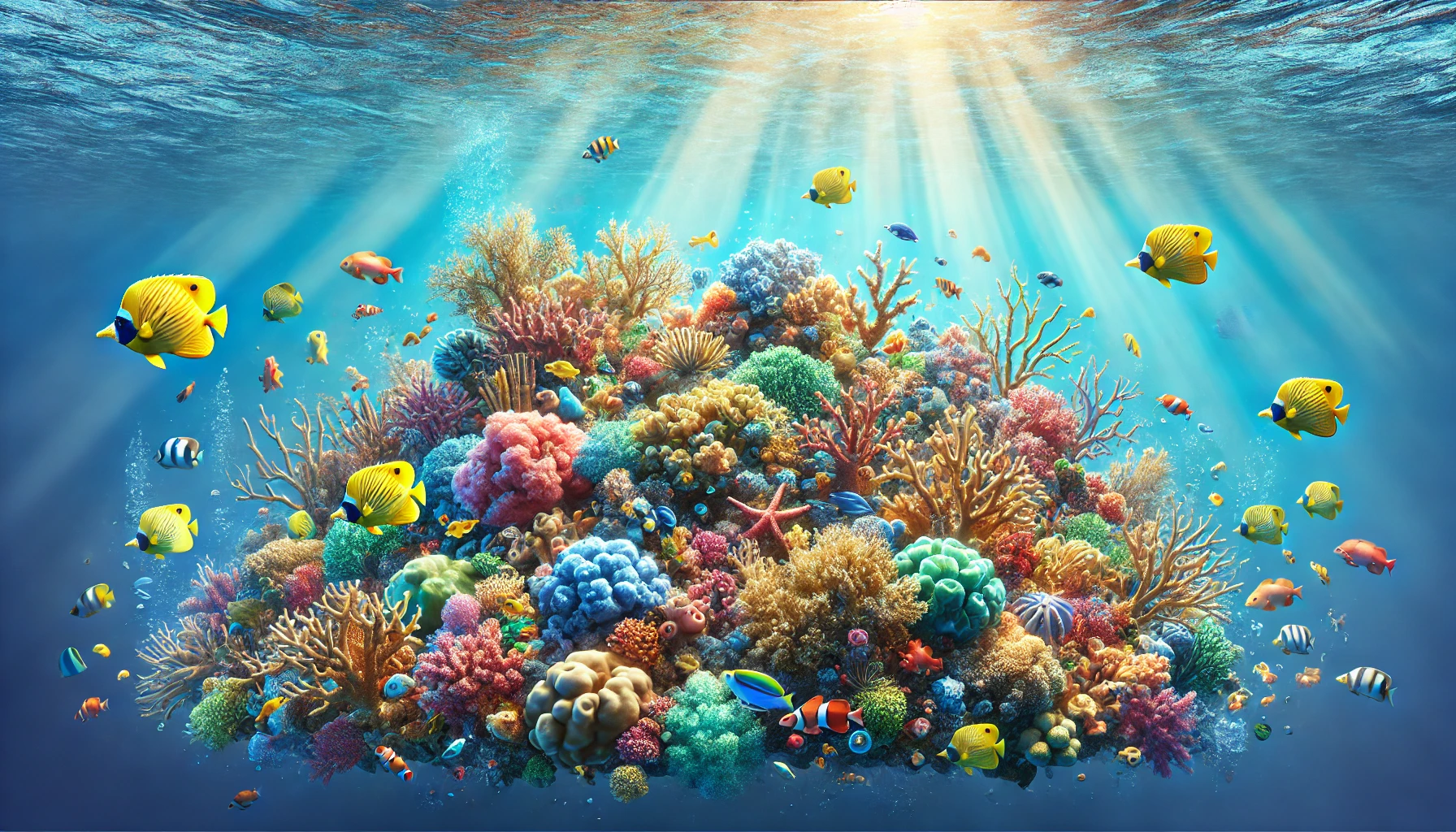How Climate Change is Devastating Coral Reefs: Can We Save Them?

Coral reefs, often called the “rainforests of the sea,” are some of the most diverse ecosystems on Earth. However, these vibrant ecosystems are now facing their greatest challenge: climate change. Rising sea temperatures, ocean acidification, and increased coral bleaching are taking a severe toll on coral reefs worldwide. In this blog, we’ll explore how climate change is impacting coral reefs and what steps we can take to save these underwater treasures.
What is Coral Bleaching?
Coral bleaching occurs when corals, stressed by rising sea temperatures, expel the algae (zooxanthellae) living in their tissues. These algae are vital to coral health, providing them with food and their vibrant colors. Without these algae, corals turn white (bleach) and struggle to survive. Although corals can recover from short bleaching events, prolonged stress often leads to death.
Ocean Acidification: A Silent Threat
As the oceans absorb more carbon dioxide (CO2) from the atmosphere, their pH levels drop, resulting in ocean acidification. This process makes it difficult for corals to build their calcium carbonate skeletons. Over time, this weakens coral structures, making them more susceptible to damage from storms and human activities. Ocean acidification also affects other marine organisms, disrupting entire ecosystems that rely on coral reefs for survival.
Why Coral Reefs Matter
Coral reefs are critical to the health of the ocean and the planet. They support about 25% of all marine life, providing habitats and shelter for fish and other species. Beyond biodiversity, coral reefs also offer protection for coastal communities by acting as natural barriers against storms and erosion. Additionally, they contribute to global food security and local economies through tourism and fishing.
Steps to Protect Coral Reefs
Although the outlook seems bleak, there are steps we can take to mitigate the effects of climate change on coral reefs. Here are some of the most effective strategies:
- Reducing Carbon Emissions: The most critical step in protecting coral reefs is reducing global carbon emissions. This can be achieved through the use of renewable energy, cutting down on fossil fuels, and promoting energy efficiency on a large scale.
- Establishing Marine Protected Areas (MPAs): MPAs create safe zones where human activity is limited, allowing coral reefs to recover and rebuild resilience against environmental stress.
- Coral Restoration Projects: Scientists are actively working on coral restoration methods, such as growing coral in nurseries and transplanting them to damaged reefs. While not a long-term solution, this can help preserve coral populations in the short term.
- Combating Ocean Pollution: Reducing plastic waste, agricultural runoff, and other pollutants is essential to improving the overall health of the ocean, giving coral reefs a better chance of survival.
Long-Term Impacts: What’s at Stake?
Without immediate action, coral reefs could become a distant memory within the next few decades. The loss of coral reefs would lead to the collapse of marine ecosystems, the extinction of countless species, and significant economic losses for coastal communities that depend on reefs for fishing and tourism. However, it’s not too late. By addressing the root causes of climate change and working together globally, we can help protect these invaluable ecosystems for future generations.
Conclusion: Hope for Coral Reefs
Climate change may be the greatest challenge coral reefs have ever faced, but there is hope. Through sustainable practices, conservation efforts, and reducing our carbon footprint, we can help protect these vital ecosystems. Coral reefs are resilient, and with the right actions, we can ensure they survive and thrive for generations to come. The time to act is now—our planet’s coral reefs depend on it.
Call to Action: Ready to make a difference? Reduce your carbon footprint, support coral reef conservation programs, and raise awareness about the importance of protecting our oceans.



